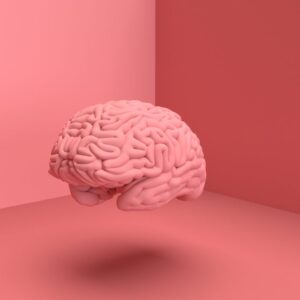The activities of humans are governed by neural unconscious activities. For instance, walking up the stairs or putting our clothes on are often unconsciously guided and done without forethought. These automatic cognitive activities raise questions regarding the existence of Free Will. The compatibility between Free Will and neuroscience is the core concept of neuro ethics as it influences societal systems around the world. With constant developments in neurotechnology, it is expected that there will be changes to societal ethics in the near future.
The concept of Free Will is vague, but crucial to societal systems. Free Will is the ability to act and choose at one’s discretion without impediment. If everything we do is not intentional but
caused by our brain should we still be held accountable for our actions? Libet et al. (1983) is the first research on the brain which evaluates the concept of Free Will. Libet et al. (1983) interpretation of the readiness potential (RP) in the brain argues that Free Will is a reduction of once’s of freedom. Recent research has utilised the discovery of RP, deriving a similar conclusion which suggests that Free Will is an illusion since cognitive thoughts for simple actions only come after it has occurred.
A recent experiment by Fried et al. (2011) recorded the activity of 1019 neurons as 12 subjects move their fingers. They found progressive neuronal recruitment 1500 ms before the subjects reported making the decision to move. Similar research from Mele, 2009; Nachev and Hacker, 2014 came to a similar conclusion about the RP within the human’s brain. These experiments indicate that simple actions are triggered by unconscious neural activity and that awareness of these actions becomes evident after the actions have occurred. Hence, a possible interpretation of these experiments is that Free Will does not exist. A common philosophical tradition is that if one did not freely choose to do something, they should not be held accountable for their actions (Glannon, 2015). Developing neuroimaging technologies can lead to the inability to hold anyone criminally responsible for their actions as neuroimaging evidence could suggest that there is no Free Will. Thus, the actions people make are caused by past experiences and uncontrolled biological impulses.
In 2016, Bear and Bloom found that we may be systematically misled about our choices, even when we have strong intuitions that suggest otherwise. In their studies, participants were presented with five white circles on a computer monitor and were asked to quickly choose one circle before one lit up red. They could decide to not choose if they ran out of time. If they decided to choose, they indicated if they had chosen the red circle or not. If participants were truly completing their choices, they should have chosen the red circle approximately 20% of the time. However, the probability recorded exceeded 30%. This suggests that participants’ minds might have swapped the order of events in conscious awareness, making bias choices that came after the colour change. The participants reported the red circle near 20% when the delay for a circle to turn red was long enough that the unconscious neural activity was not present Overall, the result suggests that the participants’ minds may have systematically deceived them about their choices when faced with rapid decisions.
While a one-second distortion in time experience may seem minimal. People with mental illnesses like schizophrenia and bipolar disorder could experience longer delays in time experience. This could harmfully warp people’s fundamental views of the world. Hence, if they
are faced with a rapid decision, their actions may be influenced by unconscious neural activities. They do not have Free Will at that moment in time. This can lead to the incapability to hold anyone criminally responsible for their actions since neuroimaging evidence could suggest that there is no Free Will and the actions people make is made up of their psychiatric illness and biological impulses that are out of control.
The absence of Free Will can complicate the legal liability for personal actions. Oliver Wendell Holmes, one of the most renowned members of the United States Supreme Court, wrote in 1881 that criminal responsibility must be based on volitional action and that lack of Free Will would be problematic for criminal law. J. G. Moore suggests in his recent article: “Oliver Wendell Holmes held that if an offender were hereditarily or environmentally determined to offend, then her Free Will would be reduced, and her responsibility for criminal acts would be correspondingly diminished.” Even though the role of Free Will in cognitive activities is not
fully understood. The rise of tech start-ups and government funding can aid further advancement in neuroscience, which can explore the absence of Free Will with solidarity. This absence of freedom in cognitive choices can undermine the notion of legal responsibility, thus changing the legal system as a whole.
Neuro ethics, in its modern form, lies at the intersection of neuroscience and personal autonomy. Several pieces of research have contributed to perceiving Free Will as an illusion. Nevertheless, more evidence is essential to concretely corroborate the paradigm. Future neurotechnology can aid the pursuit of Free Will in research and shape our understanding of the world.
Featured image retrived from: http://klab.tch.harvard.edu/press/2019/Philosophers%20and%20neuroscientists%20join%20forces%20to%20see%20whether%20science%20can%20solve%20the%20mystery%20of%20free%20will%20_%20Science%20_%20AAAS.pdf






Wow, what an interesting view?!
Wow Nathan, this is such a great article! Well done on your ICAS results and also this wonderful website.
xx Malika